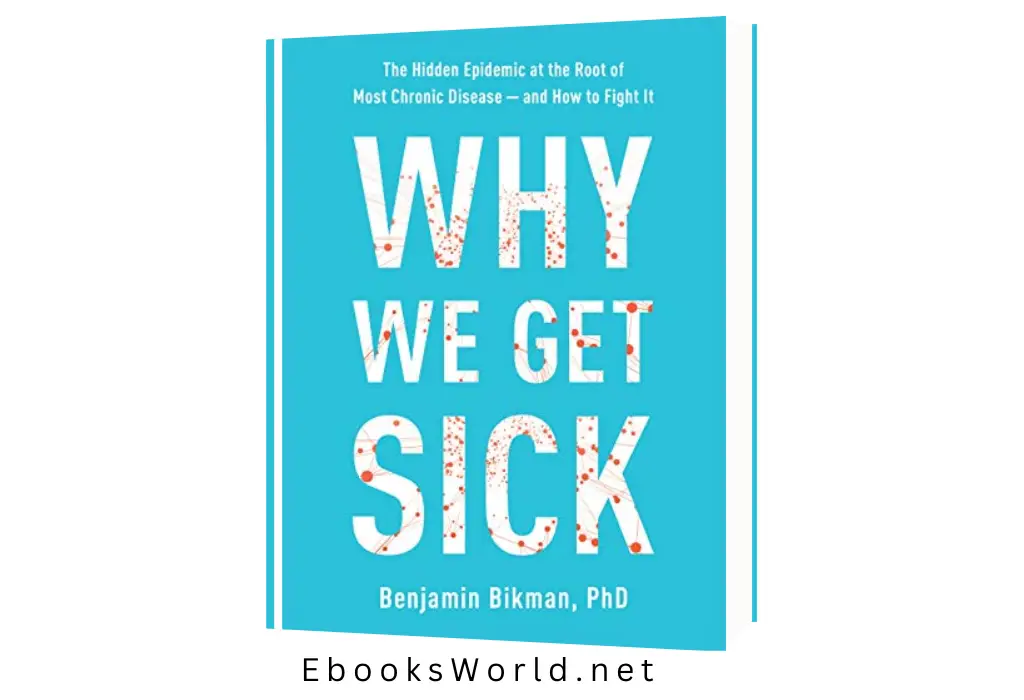Why We Get Sick: The Hidden Epidemic at the Root of Most Chronic Disease―and How to Fight It

“Why We Get Sick: The Hidden Epidemic at the Root of Most Chronic Disease―and How to Fight It” is a groundbreaking book co-authored by Benjamin Bikman, a respected scientist and researcher in the field of metabolic health, and Jason Fung, a nephrologist and expert in intermittent fasting. The book explores the concept of insulin resistance as a key factor in the development of chronic diseases and provides insights into how individuals can take control of their health through lifestyle changes.
Introduction:
The book opens by challenging the conventional wisdom surrounding chronic diseases. Instead of attributing these illnesses solely to genetics or aging, Bikman and Fung propose that insulin resistance, a condition where cells become less responsive to insulin, is a major driver of most chronic diseases. The authors argue that insulin resistance is a hidden epidemic that underlies conditions such as obesity, type 2 diabetes, cardiovascular disease, and even cancer.
The Role of Insulin:
Bikman and Fung delve into the role of insulin, a hormone produced by the pancreas, in regulating blood sugar levels. They explain how insulin facilitates the uptake of glucose by cells, promoting energy storage. However, chronic overconsumption of high-carbohydrate and processed foods can lead to insulin resistance, where cells become resistant to the hormone’s signals, resulting in elevated blood sugar levels.
Insulin Resistance and Chronic Diseases:
The authors connect insulin resistance to various chronic diseases. They discuss how it contributes to obesity by promoting fat storage and inhibiting fat breakdown. Insulin resistance is also linked to the development of type 2 diabetes, as the pancreas struggles to produce enough insulin to overcome cellular resistance. Furthermore, the book explores how insulin resistance plays a role in cardiovascular disease by promoting inflammation and atherosclerosis.
The Carbohydrate-Insulin Model:
Bikman and Fung introduce the Carbohydrate-Insulin Model, which posits that the primary driver of obesity is not excessive calorie intake but the hormonal effects of insulin. They argue that a diet high in refined carbohydrates and sugars triggers insulin release, leading to fat storage and inhibiting the use of stored fat for energy. This model challenges the traditional calorie-centric approach to weight management.
The Importance of Diet:
A significant portion of the book is dedicated to dietary recommendations for improving insulin sensitivity. The authors advocate for a low-carbohydrate, high-fat diet, emphasizing whole foods and nutrient-dense choices. They explore the benefits of intermittent fasting as a strategy to lower insulin levels, improve metabolic flexibility, and promote fat burning.
Exercise and Sleep:
The authors highlight the importance of regular physical activity in combating insulin resistance. Exercise enhances insulin sensitivity and helps maintain a healthy weight. Additionally, the book discusses the role of sleep in metabolic health, emphasizing the link between inadequate sleep and insulin resistance. Strategies for improving sleep hygiene are presented as part of a comprehensive approach to wellness.
Stress and Inflammation:
Bikman and Fung address the impact of chronic stress on insulin resistance and overall health. They explain how stress hormones can contribute to elevated blood sugar levels and inflammation, further exacerbating insulin resistance. Stress management techniques, such as mindfulness and relaxation, are recommended to mitigate these effects.
Individualized Approaches:
Recognizing that each person is unique, the book emphasizes the importance of individualized approaches to health. The authors advocate for self-monitoring and experimentation to determine the dietary and lifestyle strategies that work best for each individual. This personalized approach considers factors such as genetics, metabolic health, and personal preferences.
Conclusion:
“Why We Get Sick” concludes with a call to action, encouraging readers to take control of their health by addressing the root cause of chronic diseases—insulin resistance. The book provides practical insights, backed by scientific research, to empower individuals to make informed choices regarding their diet, exercise, sleep, and stress management.
In summary, “Why We Get Sick” challenges conventional notions about the origins of chronic diseases, placing insulin resistance at the forefront. The book serves as a comprehensive guide for readers seeking a deeper understanding of the connection between lifestyle, metabolic health, and the prevention of chronic diseases. Through its exploration of the Carbohydrate-Insulin Model and practical recommendations, the book equips readers with the knowledge and tools to take charge of their well-being.







